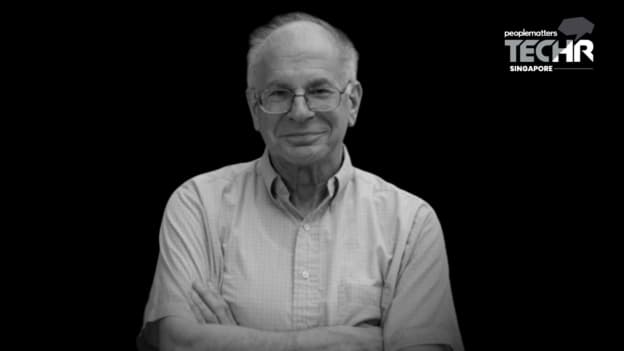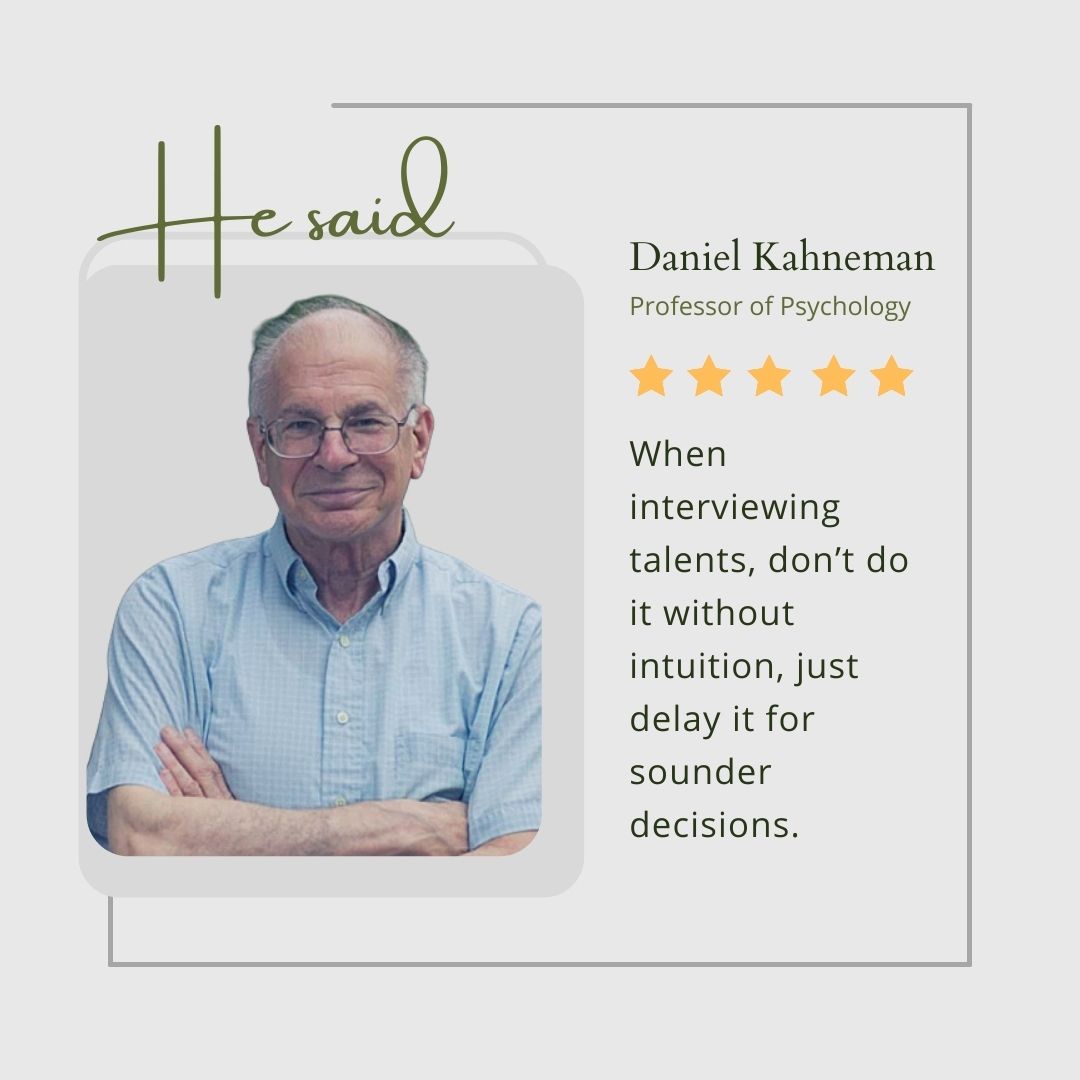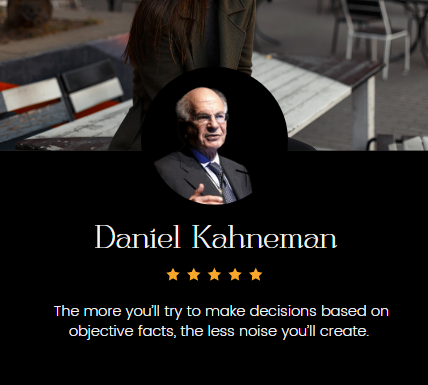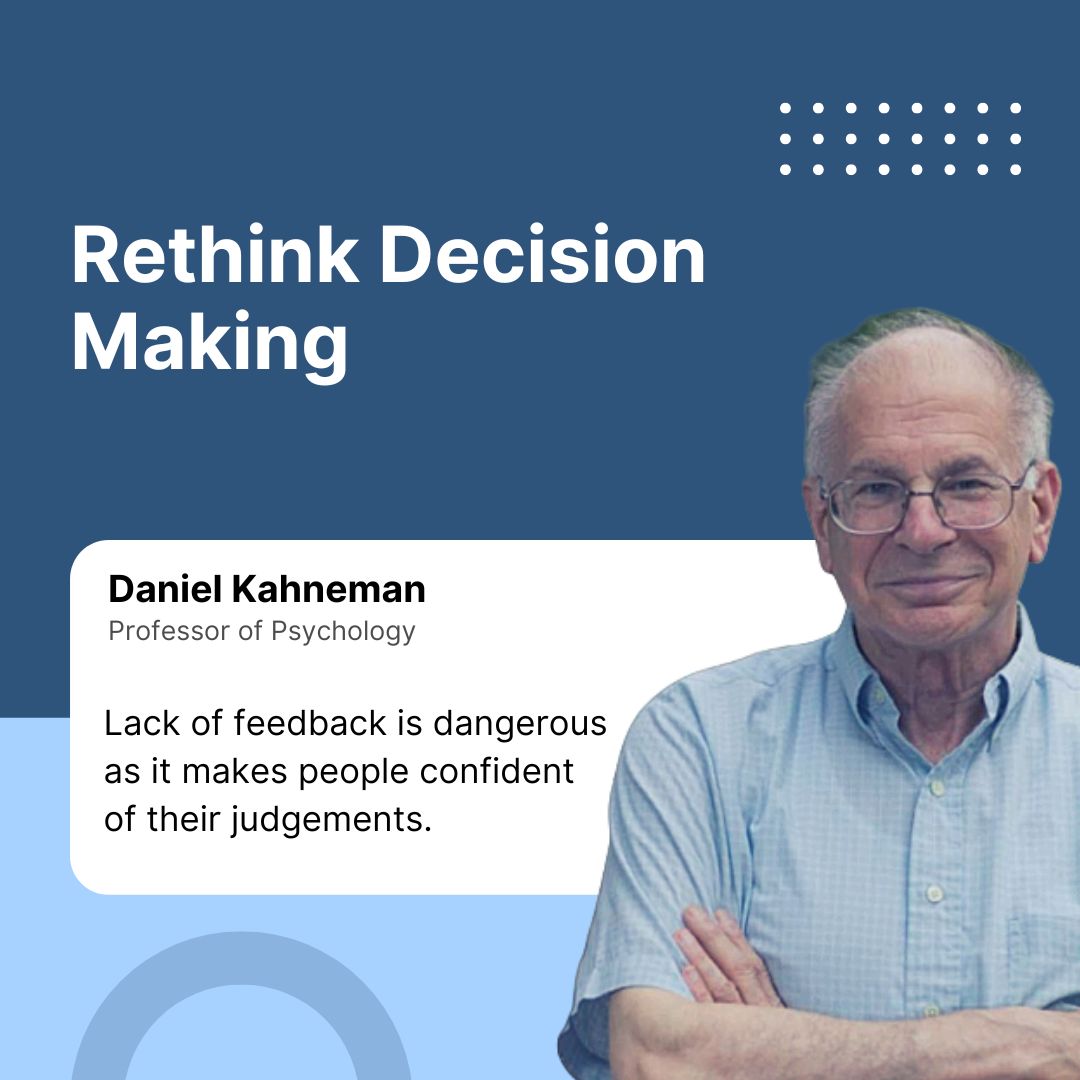Fireside Chat: Nobel Laureate Daniel Kahneman’s 5 pragmatic mantras to eliminate workplace noise

Decision bias is pervasive within our society and is therefore highly prevalent within the workplace, affecting a number of decisions. Daniel Kahneman, who is a Professor of Psychology and Nobel Prize winner, dedicated his life to understanding the psychology of judgment and decision-making. In his ground-breaking research, he demonstrated one simple truth - people are not immune to prejudice and favouritism because it would be difficult to function without them. However, implementing strategies to reduce bias in the workplace can do wonders.
While Great Resignation is already testing HR leaders, we must find effective ways to eliminate bias to improve the employee experience and business outcomes. To learn ways our thinking can be flawed and to make more informed and rational decisions, we sat down with pioneer of behavioural economics Daniel Kahneman, during People Matters TechHR Singapore’s Fireside Chat session. He gave out 5 valuable mantras that you can use in day-to-day life to make sound decisions.
1. Standardise structured interviews
The interview is a crucial stage of the hiring process which tells you about the candidates beyond their resumes. Among the two types of interviews; unstructured and structured, Daniel Kahneman strongly recommends adopting a structured interview format to avoid inaccurate hiring decisions.
The difference between structured and unstructured interviews lies in questions. While the structured format comprises predetermined questions, unstructured ones are spontaneous and the next questions emerge from the answers to the prior questions. Hence, it is unorganised, leading to asking unnecessary questions, being biased and making imprecise recruitments.
“Structured interviews are planned and are designed to cover certain topics and address specific segments about the candidate. You can include open and close-ended questions to get an insight into the candidate’s knowledge, skills, abilities, and other attributes. However, don’t do this without intuition, just delay that instinct within an interview or delay it in general to eliminate bias,” told Daniel Kahneman.

2. Minimise risks with analytical judgement
Flaws in judgement are not just restricted to hiring a new candidate for the job. Within an organisation, when it comes to performance reviews, biases have a huge impact. It can lead to the inflation or deflation of employee ratings, which can have serious implications, further affecting performance assessments such as promotion, compensation, hiring, or even firing decisions.
To refrain from making such errors, Kahneman advised gathering and considering information in length before making a big decision. He said, “You have a general impression of employees. When you have to make an unbiased decision, records and evidence can be very useful. Get in a habit of making notes about salient events. Then, during the final evaluation, go through those notes. You may discover that you have a very positive impression, but actually, there have been many problems with that individual.”
3. Navigate noise to foster a positive workplace
Daniel Kahneman describes noise as an "undesirable variability in judgments." Something that pushes humans to make decisions that prove to be life-changing, without putting the necessary thought into it. Business leaders are not immune to noise, the flaw in human judgement, and hence, they and the brand lose more than time, money and effort by making bad hires.
“The price that companies pay when noise is involved in hiring is bringing in people who perhaps shouldn't have been brought on in the first place. That’s why, leaders mustn’t rely on intuitions, such as whether they're liked by their superior or whether they have support. The key is to focus on the facts, not feelings and give the situation considerable time so that you have adequate stretch to collect information,” said Kahneman.

4. Be confident, not overconfident
The Nobel Prize laureate is a strong believer that confidence is good, but overconfidence is dangerous. It all starts with intuition, followed by the lack of feedback. As you keep making intuitive judgements without any assessment, you become overconfident in your choices as a leader. That’s why Daniel Kahneman suggested always going for a subjective sense of expertise.
“People need intuition, as it gives you the sense that you understand the situation, further making you a confident leader. However, if achieved too early, confidence can be dangerous, because it’s an indication that you’re no longer collecting information. That’s the problem with intuition,” Kahneman said.
He continued, “On the other hand, intuition with all its flaws, is necessary, but with the help of feedback. If leaders are not getting feedback, they develop a subjective sense of expertise. They think they’re getting better at understanding and judgement, but you’re not. With passing time, when you don’t get feedback, you start agreeing with yourself and when you do that, it makes you overconfident."

5. #Rethinking decision-making techniques
Effective decision-making in today’s complex and disrupted business environments can be achieved by being analytical. To accomplish the same, Daniel Kahneman shared three attributes:
A- Measurement of noise
Measure noise, study, and ask questions. “In hiring candidates, it’s crucial to know if different people reached the same conclusions or not. You can assess this by systematic studies, in which different people interview the same candidate or by making people see the same film of the interview. Then analyse if different individuals have distinct opinions. That’s how you will find out there is more noise than you thought there was,” told Kahneman.
B- Reduction of noise
Once you know there is noise involved in the process, the next step is to reduce it. “For noise reduction, case conferences are very important. People influence each other very quickly. As a leader, you must minimalise those influences with the help of strategic independent discussions,” he added.
C- Intelligent discussion
With different people looking at the same case, you’ll realise how people see one situation in different ways. The point is to “acknowledge variability as it can be very useful in making sound judgments. Thereafter, encourage people to ask questions so that every individual can share their point of view. In the end, try to draw conclusions based on objective facts and not intuitions,” concluded pioneer of behavioural economics.
This year, People Matters hosted Fireside Chat sessions, where experts tackled present-day most pressing people and work dilemmas. After all, finding solutions was the top priority at the People Matters Tech HR Singapore 2022 Fireside Chat session.















